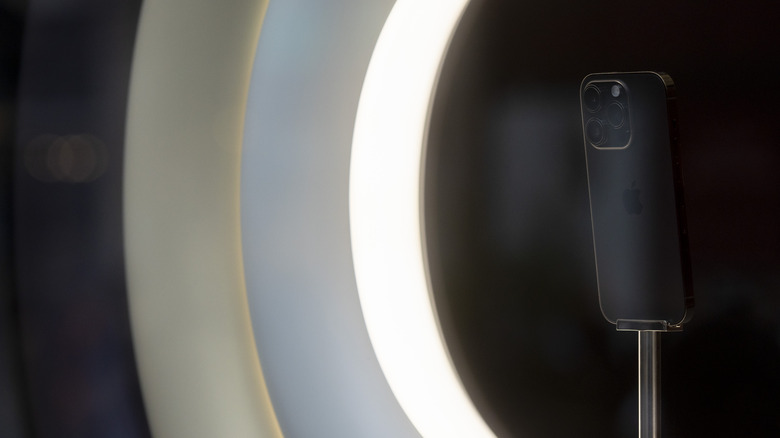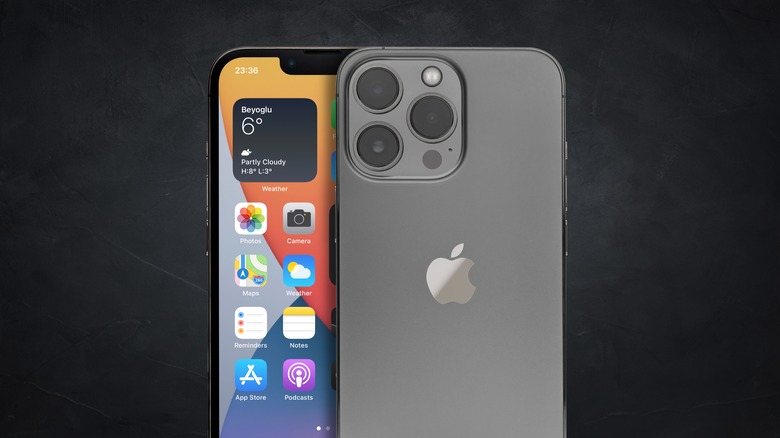iPhone 15 Pro Could See Apple's War On Buttons Claim New Victims
Apple has all sorts of signature branding — rainbow fruit, flowing curves in case design, the occasional reality distortion field (via Business Insider) — but perhaps no quality more clearly distinguishes the products of the House of Cupertino than its adamant hatred of buttons.
Despite the fact that, barring quantum, every computer system is fundamentally a bank of switches. Apple started purging clicky physical buttons from its products the moment doing so was technologically feasible. It's never let up. Apple design philosophy has consistently let graceful design overlay the guts of its machines, building computational ecosystems that work with minimal user access to what programmers call the bare metal of the device (via Techopedia).
The iPhone, smooth, easy to use, and almost entirely without external features, is both Apple's most successful product — 52% of Apple revenue came from iPhone sales alone in 2022, per Business of Apps — and the best example of its design philosophy. In keeping with that, rumor suggests one of the iPhone's last physical elements will go the way of the Dodo as of iPhone 15.
Never let them see your code
Per MacRumors, Texas-based semiconductor manufacturer Cirrus Logic has hinted that it will build haptic inputs for the next iPhone, doing away with the need for physical power buttons. We've already done an in-depth explainer on haptic input and feedback, but the short version is that haptics are tactile information provided by a designer that isn't the direct result of a physical process.
Think of starting a car. When you turn the key and feel the engine kick, that's physical feedback. When you start a car's engine in a video game and the button vibrates and the screen shakes, no engine required, that's haptic feedback. One happens because an engine has actually started moving. The other happens because a programmer has instructed it to.
Haptics are not automatically better or worse than physical inputs. Physical inputs give the user greater access to their machine, for better or worse. Many good cars have suffered because an over-excited driver rode the starter motor until it broke. Conversely, the looser connection between user and machine provided by haptics may leave the user helpless when the machine goes wrong.
In short, haptic power buttons may be a plus or a minus on the iPhone. We won't have any idea until we get one to play with. What we know for now is that the rumor is fairly well-substantiated. Apple may well have found another button it can destroy.

